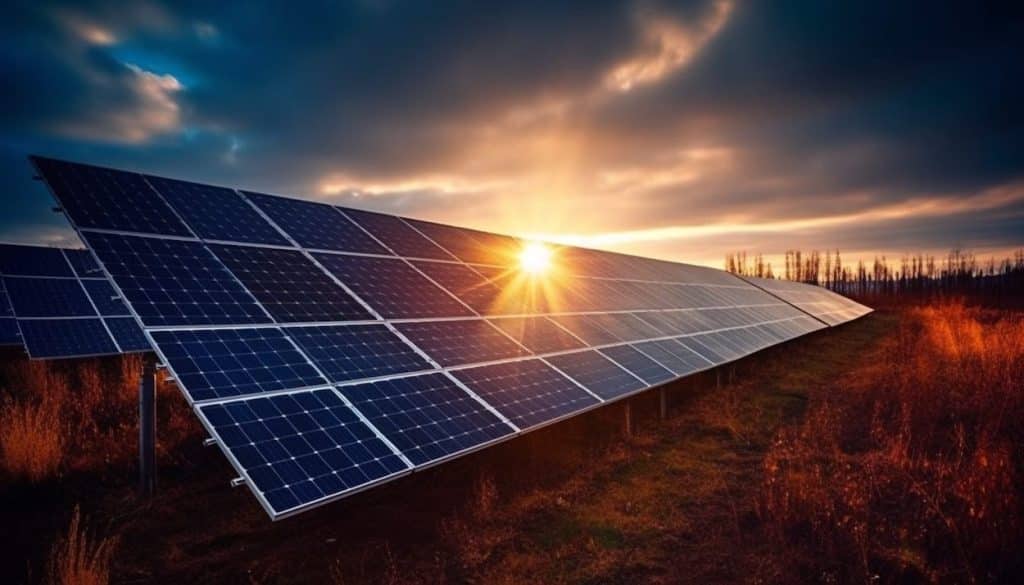Have you ever wondered how to balance sustainability with profitability in large-scale operations? The short answer is that commercial solar panel installations, commercial PV installations, and the work of commercial PV installers can offer both environmental benefits and cost savings. Whether you run a corporate facility or manage farmland, agricultural solar panels have become an increasingly practical choice. People are even adding solar panels on farm buildings to harness clean energy while trimming expenses. In collaboration with commercial solar panel installers and top commercial solar companies, you can find solutions that fit your needs. More so, solar panels for farm buildings are on the rise globally, including those installed by commercial solar panel installers UK.
Use this insight to guide your energy strategy and enhance your organisation’s resilience.
Background and Significance
Commercial solar adoption has seen rapid growth as businesses and farms realise the dual advantage of ecological responsibility and financial gain. Traditionally, companies viewed renewables as costly or experimental. However, advances in technology, rising utility costs, and incentives have reshaped that perception. From warehouses to pastureland, commercial solar panel installations are no longer a fringe option—they’re a smart investment.
Farms also see meaningful transformation. Once reliant on traditional energy sources, many are now transitioning to agricultural solar panels to reduce overhead and increase sustainability. Livestock barns, storage silos, and greenhouses have turned into prime real estate for harnessing solar energy.
Core Advantages
1. Long-Term Savings
One of the main advantages of commercial PV installations is the significant reduction in electricity costs over time. Solar systems, once installed, can provide decades of near-zero cost energy, offsetting your usual bills.
2. Tax Credits and Government Incentives
Government policies in various regions, including the UK and many parts of Europe, offer tax credits, rebates, and grants for installing solar systems. When partnering with commercial solar panel installers, be sure to inquire about location-specific incentives.
3. Environmental Impact
By generating clean electricity, you lower greenhouse gas emissions and pave the way toward greater corporate social responsibility. This eco-friendly credential can be a powerful brand differentiator.
4. Enhanced Property Value
Installing solar panels on farm buildings or commercial facilities often boosts property value. Prospective buyers and tenants appreciate the lower operating costs and environmental stewardship.
Choosing the Right Solar Technology
The world of solar is vast. Standard photovoltaic (PV) panels remain the most popular, but thin-film and emerging technologies have also gained traction. Reputable commercial PV installers can guide you through the technical details to ensure you select the best solution.
- Standard Solar PV Panels: Usually have high efficiency and are suitable for businesses with ample roof space.
- Thin-Film Panels: More flexible and lightweight, though typically lower in efficiency. Useful for unconventional or fragile rooftops.
When deciding, consider your energy consumption pattern, available space, and long-term goals. Expert commercial solar companies often provide comprehensive assessments to streamline this process.
Implementation Steps
1. Site Assessment
A professional evaluation determines how best to situate your solar array. Roof angles, shading elements, and local weather patterns all play crucial roles.
2. System Design
Working with commercial solar panel installers ensures that you have a plan tailored to your energy needs. Whether you’re placing solar panels for farm buildings or a corporate structure, customisation is key.
3. Installation and Commissioning
The physical installation requires mounting panels securely and connecting them to your facility’s electrical system. Reliable commercial PV installers will verify that everything functions optimally before leaving the site.
Cost Analysis and Funding Options
Most businesses worry about the upfront expense. However, various financing models, such as Power Purchase Agreements (PPAs) and leasing, can significantly reduce initial costs. Local governments frequently offer grants for commercial solar panel installations, which helps mitigate the financial burden.
- Grants and Subsidies: Some agricultural areas provide extra support for solar panels on farm buildings.
- Tax Deductions: Solar-related expenses may be tax-deductible, offering year-end relief.
- Payback Period: Depending on energy costs and subsidies, the payback period often ranges from five to ten years.
Role of Solar in Agriculture
Farms can benefit dramatically by installing agricultural solar panels. Beyond powering irrigation systems, refrigeration units, and general operations, solar setups can create a new revenue stream if you feed excess electricity back to the grid. This is where commercial solar panel installers UK can guide rural communities on best practices.
Additionally, solar panels for farm buildings can be more durable than one might think. Systems are designed to withstand various climatic conditions, ensuring that your farm’s energy security remains intact.
Future Outlook
The future of commercial solar panel installations is bright, driven by declining panel costs and growing environmental consciousness. Research continues to improve solar efficiency, battery storage, and integration with smart grids. Expect more advanced systems, streamlined permitting processes, and better support from energy authorities globally.
For additional guidance on improving your commercial or agricultural energy setup, be sure to speak with local commercial solar panel installers or recognised commercial solar companies. If you operate in the UK, specialised commercial solar panel installers UK are well-versed in local regulations and incentives, making adoption even smoother.
Table: Comparative Overview of Solar Panel Options
| Panel Type | Average Efficiency (%) | Approx. Cost (per Watt) | Typical Payback (Years) | Reference |
| Standard PV | 15-20 | $2.50 – $3.50 | 5-8 | NREL, 2024 |
| Thin-Film | 10-15 | $2.00 – $2.80 | 7-10 | NREL, 2024 |
Conclusion
Adopting commercial PV installations is no longer just a trend; it’s an essential move for businesses and farms aiming to stay competitive and eco-friendly. Whether you opt for agricultural solar panels or plan to install solar panels on farm buildings, a well-chosen system can significantly cut costs while boosting sustainability. Collaborate with experienced commercial PV installers to make the most of current incentives and technological advancements.
For more information on commercial solar panels, visit: https://excelenergy.co.uk/commercial-solar-PV/
